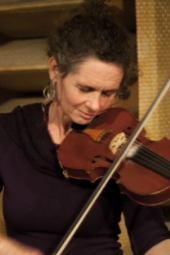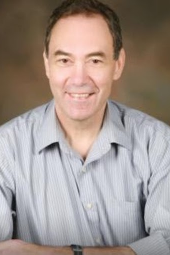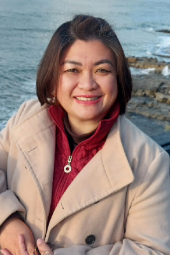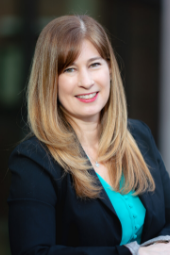From Asia to Europe and beyond, meet the Douglas College instructors making global connections through collaborative Global Learning Online projects.
Making Music That Resonates Across Continents

Hazel Fairbairn wanted her Music Technology students to get hands-on experience collaborating with musicians across the globe. She and her partner instructor in Rwanda created a syllabus that helped both their classes gain the skills and opportunities they need to succeed in the music industry.
In 2021, Hazel pitched a COIL project to Jacques “Popo” Murigande, from the Rwanda School of Creative Arts and Music (RSCAM), which would link his music business classes to her Career Development for Musicians course. While Douglas’s Music Technology program is strong on production and studio recording, RSCAM emphasizes rehearsal and performance.
Between the two approaches, Hazel and Popo created a collaboration-based course experience that gave their students a wider intercultural understanding of music production. Their syllabus offered support to RSCAM students entering Rwanda’s nascent music industry, and it gave Douglas College students the chance to produce songs alongside seasoned musicians, negotiate real-world contracts, and handled marketing and distribution.
Over the three months of the COIL project, the students collaborated in groups to make, drop and market their own music tracks. In the process, they met the challenges posed by transnational barriers to music collaboration, including a 10-hour time difference, a language barrier and differences in technology access.
Hazel attributes the success of her COIL to the students’ patience and diligence amid the challenges of working together across continents.
“I was blown away. They accepted that the experience would be frustrating at times, but they took all of that onboard with goodwill,” Hazel says. “Both groups of students will graduate into a world where traditional borders and regions of distribution are dissolving. Long-distance, intercultural collaboration is becoming critical.”
Hazel has participated in COIL each year since then, making more and more opportunities to expand her students’ learning. In 2023, eight students from the Douglas College Music programs will spend 10 days of immersive music-making in Rwanda, at RSAM, culminating in a performance at Popo’s Kigali Up festival in July.
Creating a virtual world, connecting students across countries

Graham Rodwell wanted his students in SOSC 3141: International Organizational Behaviour to learn about cultural differences in workplaces around the world. His COIL project birthed a digital space that let his class do just that.
During the Winter 2021 semester, Graham worked with instructors from Hanze University of Applied Sciences in the Netherlands, VSB-Technical University of Ostrava in Czechia and Satakunta University of Applied Sciences in Finland. Together they designed a conference centre in GatherTown, a platform where users interact with each other in a video game-esque world.
In this digital space, students attended and facilitated workshops together. These workshops focused on conversations around the workplace, employment and labour-related organizational practices around the world.
“Virtual spaces like this are valuable to students because they expose them to different patterns of behaviour and interaction,” Graham says. “Students may not get to visit a different country, but this type of virtual workshop still carries value. It’s a practical and inexpensive way to experience education in another cultural context.”
Graham attributes the success of his COIL experience in part to the strong communication network between international offices at post-secondaries like Douglas worldwide, as well as the instructors’ and students’ collective adaptability in moving the course forward.
“Working with faculty and students from other countries like this is eye-opening,” Graham says. “This wasn’t the first time I’ve done a cross-cultural project, but it certainly increased my own sense of global awareness and engagement.”
Strengthening existing bonds to create rich intercultural connections

With over a decade of teaching experience in the Philippines, Douglas instructor Aurora Faundo knew that partnering with Far Eastern University (FEU) in Manila for her first COIL program was the right choice. Having previously worked at FEU, Aurora used her strong connection with the university to give her Business 3350 Human Resource Management course an international perspective.
For Aurora and her partner professor, Ryan Mercado, collaboration was key. Coordinating class times between the two institutions meant that students from Douglas and FEU were able to participate in lectures and group conversations together over Zoom.
“Ryan and I would alternate lectures, where he would teach about human resource practices in the Philippines and I would focus on the Canadian ones,” says Aurora. “Students then reflected on what they learned in terms of the differences and what they saw as better practices in the other country, so that they could broaden their understanding of global human resource operations.”
COIL’s online format made it easy to bring in a guest speaker to talk to both classrooms.
“Inviting a speaker from a multinational organization allowed both groups of students to learn something new from outside their own country,” says Aurora. “It was exciting for me that this program opened up an opportunity to invite a speaker. We don’t need to travel anywhere; we just need internet and Zoom access to be able to learn from one another.”
Aurora hopes that other instructors will take the leap in creating a COIL project. Apart from students gaining experience, knowledge and a better understanding of other cultures, it’s also an opportunity for instructors to expand their ways of teaching.
“I appreciated the importance of teamwork in COIL. Sometimes teaching can be a lonely profession because you do a lot of the work alone,” says Aurora. “This project reminded me of how beneficial collaboration can be.”

When Janice Sestan partnered with a fellow global studies professor in Japan, she knew it would help her students branch out in ways she couldn’t facilitate alone. The strong bonds the two classes built across borders served as the ultimate proof.
Janice and her partner professor, Rachelle Meilleur from Kyoto University of Foreign Studies (KUFS), wrapped up their third COIL program in Fall 2022. Janice says working with Rachelle gave her the opportunity to turn her Global Citizenship 1101 course into a collaborative, intercultural experience for her students.
Janice and Rachelle centred their courses around SIMA Academy, a platform for globally sourced short documentaries. They took on the platform’s SDG Challenge: Advancing Media Information Literacy and Global Citizenship through the Power of Film.
This challenge was a call to educators to create learning environments that focus on social and global justice awareness. Over the eight weeks of the course, Janice and Rachelle’s students worked together to create video presentations that showcased their own sense of belonging in a global community and their roles in promoting social justice, sustainability and human rights in local and global contexts.
The project was so successful that Janice and Rachelle received an award from SIMA Academy, United Nations Educational, Scientific and Cultural Organization (UNESCO) and Asia-Pacific Centre of Education for International Understanding (APCEIU) for taking part in their challenge.
Janice says that the College’s existing global vision gave herself, Rachelle and their respective students the right trajectory to thrive in this program.
“Douglas’s classrooms are full of international students and a lot of diversity to begin with. Partnering with other institutions means creating a joint program with instructors and students who already have intercultural and international experiences in mind.”
The strong relationship Janice built with her partner over the course of these three programs was what made their most recent endeavour so successful, Janice says.
“We taught each other about virtual exchange practices. Rachelle took training and then brought that to me. I was doing all my research on my own – learning, finding resources and making sure we were implementing best practices,” she says. “Discovering each other’s working styles, pedagogies and the goals we had for our students was what made the collaboration work for both classrooms.”
In the future, Janice plans on developing a trilateral COIL collaboration between herself, a professor from ITESO Universidad Jesuita de Guadalajara, Mexico, and her existing partner at KUFS.